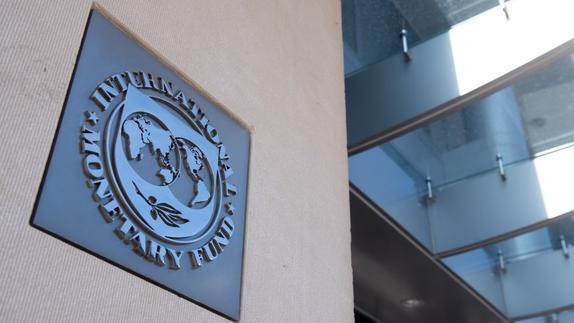 A sign is seen outside the headquarters of the International Monetary Fund in Washington, DC, April 15, 2020. (PHOTO / AFP)
A sign is seen outside the headquarters of the International Monetary Fund in Washington, DC, April 15, 2020. (PHOTO / AFP)
WASHINGTON - China's external position in 2019 was broadly in line with the level "implied by medium-term fundamentals and desirable policies," the International Monetary Fund (IMF) said in its new External Sector Report released Tuesday.
"Policy reactions have appropriately prioritized support to the most affected households, workers, and firms, with increased focus on further supporting the demand recovery," the IMF said.
The multilateral lender said China has room to provide more policy support if needed, including on green investment and strengthening the public health system and social safety net.
ALSO READ: IMF slashes Middle East and Central Asia growth forecasts
"If imbalances that existed prior to the COVID-19 outbreak persist in the medium term, policies to achieve a lasting balance in the external position should include a gradual fiscal consolidation and successful implementation of the authorities' reform agenda, which addresses distortions and supports rebalancing," according to the report.
Current account imbalances narrowing in 2020
The IMF also forecasted in the report that the COVID-19 pandemic could narrow the surpluses and deficits imbalances further in 2020, continuing the trend in 2019.
The IMF forecasts for 2020 imply "a modest narrowing" in current account surpluses and deficits by some 0.3 percent of world GDP
In 2019, the global current account balance, the absolute sum of all surpluses and deficits, declined by 0.2 percentage point of world gross domestic product (GDP) to 2.9 percent of world GDP.
The IMF forecasts for 2020 imply "a modest narrowing" in current account surpluses and deficits by some 0.3 percent of world GDP, "although subject to high uncertainty," according to the report.
Larger-than-warranted current account balances were mostly in the euro area, driven by Germany and the Netherlands, while lower-than-warranted current account balances mainly existed among Britain, Canada, and the United States, the report noted.
COVID-19 impact 'acute'
The IMF noted that for economies dependent on severely affected sectors, such as oil and tourism, or reliant on remittances, the impact of the COVID-19 crisis has been "especially acute," with negative effects on external current account balances expected to exceed 2 percent of GDP that will likely require "significant economic adjustment."
The IMF urged policymakers to continue to focus on providing relief and promoting economic recovery in the near term
"The outlook for external positions remains highly uncertain, with significant risks," the IMF warned.
A further worsening in risk sentiment could -- for economies with preexisting vulnerabilities, including large current account deficits, a high share of foreign currency debt and limited international reserves -- further increase risks of an external crisis, the report noted.
READ MORE: IMF chief warns global economy 'not out of the woods'
The IMF urged policymakers to continue to focus on providing relief and promoting economic recovery in the near term, stressing that "tariffs and non-tariff barriers to trade should be avoided, especially on medical equipment and supplies, and recent new restrictions on trade rolled back."


